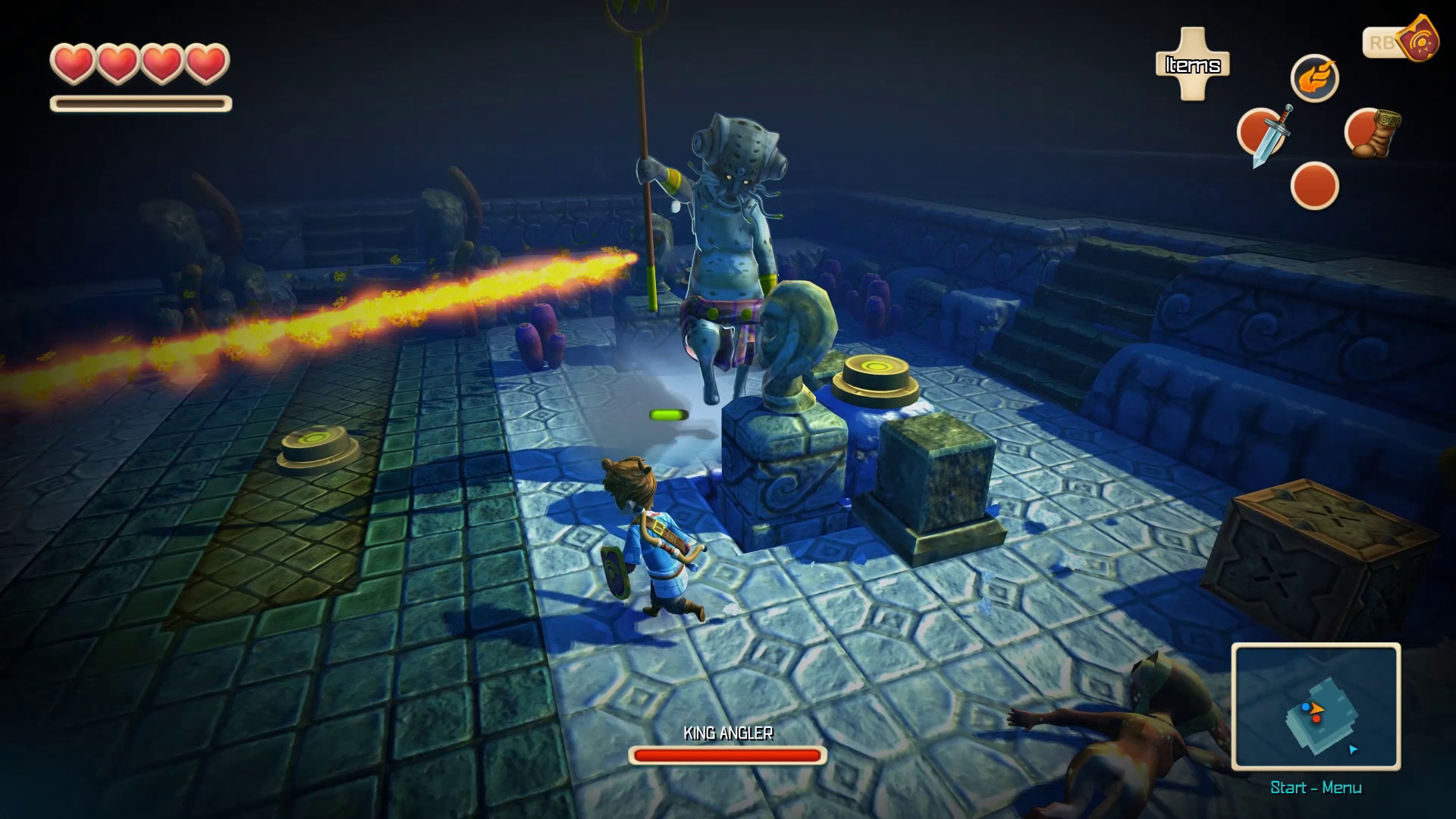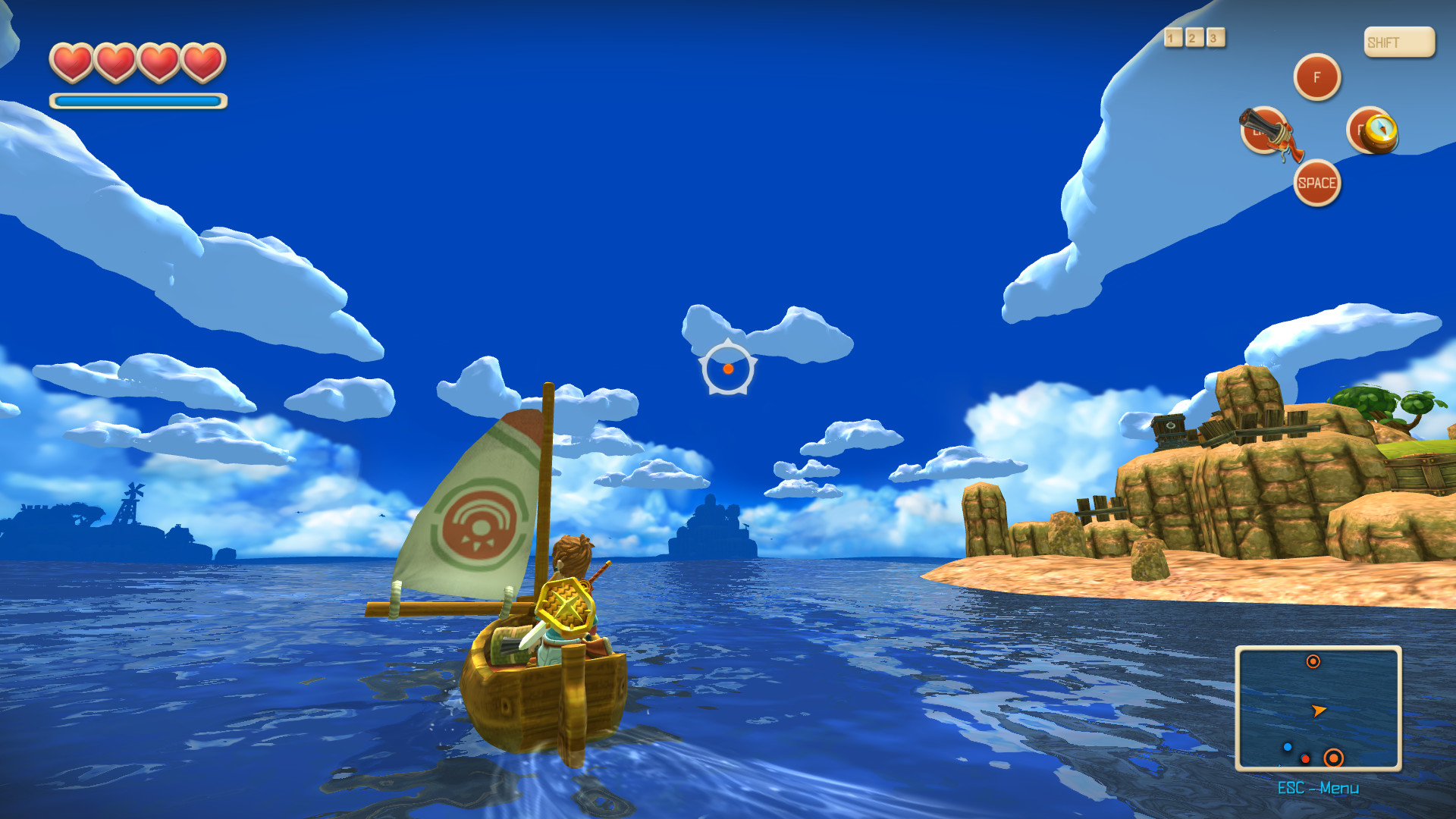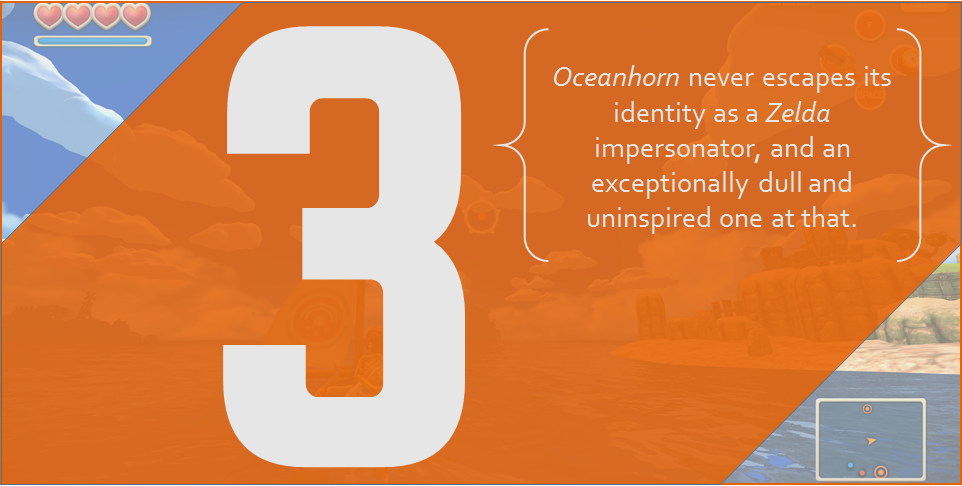Imitation Isn't Very Flattering In Oceanhorn: Monster of the Uncharted Seas
Videogames are in love with themselves. Or rather, they’re in love with the monoliths of gaming history, the games that for many form a mesh of absolutes and ideals which other games continually seek to emulate. Sometimes this leads to the betterment of an idea, a concept first imitated and then refined so that it then becomes synonymous with this new game that did it better. Other times though the ways games so constantly seek to recreate their predecessors never extends beyond rudimentary or reductive replication, seeking success by playing to familiarity and nostalgia. This is where we are met with Oceanhorn: Monster of the Uncharted Seas, a would be Zelda clone that is the gaming equivalent to that off-brand action figure your grandmother mistakenly bought you for Christmas, on the surface indistinguishable from the original but whose inadequacy becomes immediately known once the disingenuous packaging is breached. Oceanhorn mirrors not only Zelda’s style of play, but its aesthetic and structure. Its art design is inarguably seeking to reflect that of Zelda’s more cartoony iterations, specifically the nautically inclined Wind Waker and Phantom Hourglass. Oceanhorn’s world is bright and colorful, segmented into different islands you access by sailing on those supposedly uncharted seas, with a bouncy demeanor that is unable to distract from the overwhelming feeling of artificiality present in every aspect of Oceanhorn’s design. This isn’t wholly due to Oceanhorn’s status as a poor man’s Zelda, but the result of a world that feels entirely synthetic. The whimsical charm and history always so paramount to Zelda’s world design is entirely absent, replaced with a cold and alienating feeling of obligation. Oceanhorn’s world exists entirely for the sake of housing its plot, a plot which expands and shrinks in whichever way it finds convenient, pouring out backstory when it needs to feel grandiose and then receding into the background when it fails to back up its attempts at magnificence with anything more than words.

Where Zelda constructs its narrative to intersect and enhance its mechanics, Oceanhorn uses it as a crux. Things happen because the game needs you to move to the next dungeon. Plot is only ever employed for the sake of giving context to your actions, but the writing is so stale and inconsistent that it causes the game as a whole to feel even more so the product of recognizable but unofficial parts. Details are always given in terms meant to imply a storied history to this land, with caves and lost princesses being hidden away for thousands of years, and yet within minutes of arriving to these areas you are able to overcome whatever obstacle was standing in the way of the local inhabitants, often by such trivial means as to call into question whether anyone has actually cared even a little about the fate of their world until you arrived. There is an astounding level of pointlessness to Oceanhorn’s plot given how much time it dedicates to selling you on it, to the point I feel it would be better off simply tearing it all out and letting the mechanics speak for themselves.
It seems fair to say Oceanhorn’s main draw isn’t its plot but its mechanical similarity to Zelda, so its true test is in how well it manages to reconstruct a formula that has changed little over the years and yet remains incredibly well regarded and popular. In this Oceanhorn is...fine. It manages to mirror many of Zelda’s most recognizable aspects, from item based navigation puzzles to dungeon layouts and boss designs, but it never loses that feeling of being a cheap imitation. One of Zelda’s biggest strengths is in the multilayered design of its world and dungeons, where puzzles build upon themselves as your means of solving them becomes larger, each knew item bringing with it a host of immediate and secondary applications.

Oceanhorn in comparison is much less intricate in its design, presenting you with new items when it sees fit but never giving you much to do with them. There are puzzles here they are more like speedbumps than roadblocks, tending to hold you up for a moment but ultimately tedious to overcome and often of the same block-pushing variety. The lack of intelligent level and puzzle designs causes Oceanhorn to feel intensely segmented and linear, each dungeon serving to send you on the next but having little for you to actually do while you’re there. Exploration is nearly entirely absent both within levels and in the overworld, the former due to the narrow design of each island, and the later as the boat you use to travel between islands is entirely on rails.
Even as one of the few who enjoyed Wind Waker’s sailing, traveling between islands in Oceanhorn is excruciatingly obnoxious. There is so little to do in these segments that their inclusion is as worthless as the plot attempting to justify it. The ocean itself is tepid and lifeless and the only thing populating it an abundance of trash you need to clear away with your cannon, a task no doubt meant to keep you occupied until you arrive at your destination but only serving to make sailing even more annoying as you are then required to pay attention the whole time you are cruising along lest you bump into a mine someone carelessly left floating around. The monotony of sailing caused me to lose any interest I might have had to return to previous island to pick up a collectible I missed or finish up some of the sidequest objectives I hadn’t gotten around to, though these additions contribute so little to the game that the only real reason to pursue them is for the sake of completion.
Final Word
Oceanhorn’s only truly alluring aspect is its novelty as the closest PC and mobile players can get to a native Zelda game. With so little like it on these platforms it is tempting to accept and justify Oceanhorn’s middling to bad attempts to replicate Nintendo’s iconic franchise, solely because it’s all we are likely to ever get. But for as hard as it might try, there is no mistaking Oceanhorn as anything but a knock-off, and not a good one at that. Its design is uninspired and meandering, a chore to navigate and a bore to solve. Even excluding comparisons to Zelda proper, Oceanhorn isn’t fun to play, and if it wasn’t for bearing such a striking resemblance to that series I doubt anyone would have paid it much attention in the first place.


